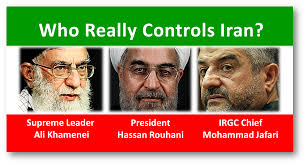June 2016
As the Iranian people continue to oppose taking
part in the Syria war, the Revolutionary Guards Quds Force has been forced to
dispatch its most senior IRGC commanders to support the Levant dictator Bashar
Assad. To this end, heavy casualties have been inflicted to senior IRGC
commanders and these ranks no longer have any temptation to participate in the
Syria war.








